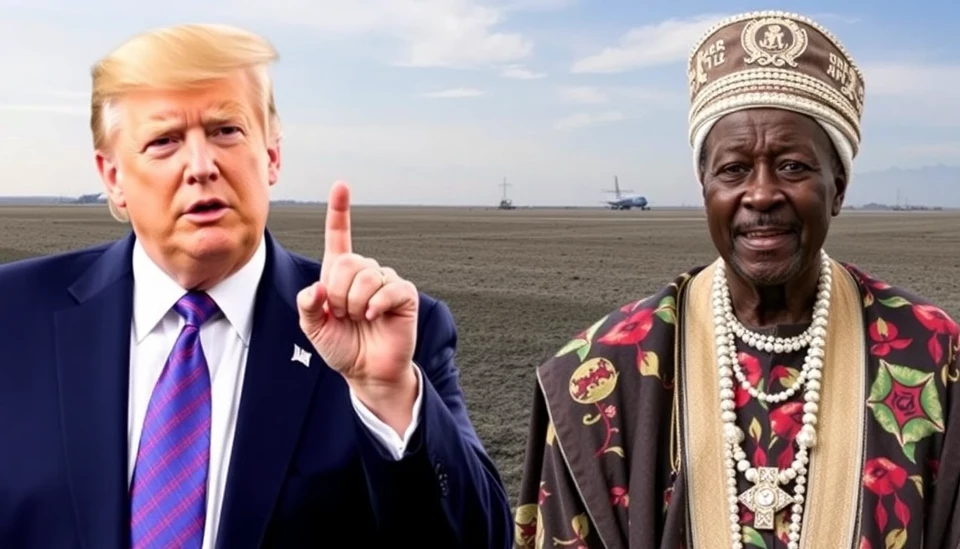
In an unprecedented economic maneuver, former President Donald Trump has directed the imposition of the highest tariff rates in the world on goods from a specific African kingdom, stirring up significant reactions both domestically and internationally. This decision comes as part of a broader strategy aimed at reshaping trade dynamics and addressing perceived imbalances that the former president believes threaten American economy and interests.
The targeted kingdom, which remains unnamed in the current report, relies heavily on exporting commodities to the United States. This abrupt increase in tariffs is expected to disrupt trade flows and could potentially lead to retaliatory measures from the African nation, raising concerns about the implications for bilateral relations and regional stability.
Analysts suggest that Trump's move reflects his "America First" agenda, emphasizing his commitment to protecting American industries by imposing hefty tariffs on foreign imports that he argues undermine U.S. economic strength. This particular tariff, set at an astonishing rate that eclipses previous records, is projected to have far-reaching effects not only on the kingdom's economy but also on American businesses that import goods from there.
Reactions to Trump's announcement have been mixed. Supporters of the decision laud it as a necessary step to protect American jobs and promote domestic production. They contend that this kind of assertive policy is essential in a global environment where competition is increasingly fierce. On the other hand, critics warn that such drastic measures could lead to unintended consequences, including increased prices for consumers and potential trade wars.
International trade experts are closely monitoring how this move will play out in the coming weeks and months. There are concerns that the imposed tariffs may lead to a cycle of tit-for-tat responses from the kingdom, which might choose to retaliate against U.S. exports, further complicating the already intricate web of global trade relationships.
As the situation unfolds, businesses and consumers alike will be watching closely. Many companies that rely on imports from the kingdom are bracing for higher costs, which may force them to reconsider their supply chains and pricing strategies. Meanwhile, the kingdom's government is reportedly assessing its options and preparing for possible diplomatic engagements to mitigate the fallout of Trump’s tariff announcement.
In summary, Trump's decision marks a notable escalation in his trade policies that could redefine U.S.-Africa economic relations. The implications of this tariff will not only impact the U.S. and the targeted kingdom but could also set a precedent for future trade practices worldwide.
As these developments continue to unfold, stakeholders in the global economy are urged to stay informed and prepared for the shifts that may result from this significant policy change.
#TrumpTariffs #TradePolicy #USAEconomy #AfricaRelations #GlobalTrade #EconomicImpact #TariffNews
Author: Laura Mitchell




